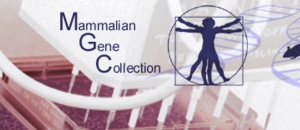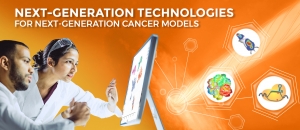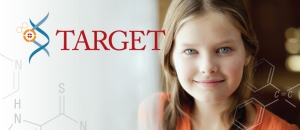Programs
OCG programs support research on structural, functional, and translational genomics, as well as the development of next-generation cancer models. These programs promote advances in technology and provide accessibility to data, tools, and reagents for the research community worldwide. OCG programs interconnect with other genomics and translational projects in order to accelerate discoveries into the clinic and improve patient outcomes.
Below are OCG’s current and completed programs:
Current Programs
The Cancer Genome Characterization Initiative (CGCI) uses molecular characterization to uncover distinct features of rare cancers. Current projects perform comprehensive molecular cataloging of HIV+ and other rare adult and pediatric cancers. The research community can use CGCI data to gain insights into the underlying mechanisms of these cancers and identify potential therapeutic targets.
The Cancer Target Discovery and Development (CTD2) Network, a functional genomics initiative, bridges the gap between cancer genomics and biology. The Network aims to understand how tumor heterogeneity leads to drug resistance in order to develop optimal combinations of chemotherapy or small molecules in combination with immunotherapy.
The Human Cancer Models Initiative (HCMI) is an international consortium that is generating novel, next-generation, tumor-derived culture models annotated with genomic, clinical, and biospecimen data. HCMI-developed models and case-associated data are available as a community resource. NCI is contributing to the initiative by supporting four Cancer Model Development Centers (CMDCs).
Next-Generation Technologies (NGT) Program supports the development of technology tools that will facilitate, accelerate, and/or enhance research using advanced human-derived next-generation cancer models such as organoids, conditionally reprogrammed cells, and others. The technology tools will focus on utilizing next-generation cancer models from the Human Cancer
The Therapeutically Applicable Research to Generate Effective Treatments (TARGET) program applies a comprehensive genomic approach to determine molecular changes that drive childhood cancers. The goal of the program is to use data to guide the development of effective, less toxic therapies. TARGET is organized into a collaborative network of disease-specific project teams.
Completed Programs

CGAP: Cancer Genome Anatomy Project
The Cancer Genome Anatomy Project (CGAP) data no longer exist. The Mitelman Database of Chromosome Aberrations and Gene Fusions in Cancer has a new home at the Institute for Systems Biology Cancer Genomics Cloud. The Mitelman Database relates chromosomal aberrations to tumor characteristics, based either on individual cases or associations.

ICG: Initiative for Chemical Genetics
The Initiative for Chemical Genetics (ICG) provides a systematic approach to studying biology through small molecule probes and screens so that new therapies for diseases like cancer can be developed.

MGC: NIH Mammalian Gene Collection
The Mammalian Gene Collection (MGC) provides an open access bank of full-length open reading frame (FL-ORF) clones for human, mouse, cow, rat, xenopus, and zebrafish genes.





